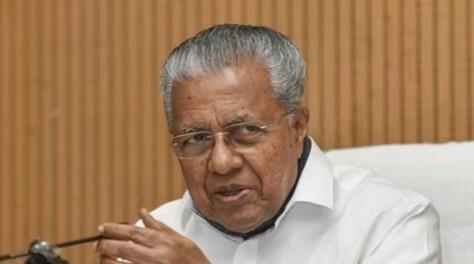
Attack on Federalism: Kerala CM on Bills to Remove Jailed PM, CMs
The recent developments in the Indian political landscape have raised concerns about the federal structure of the country. The Constitution (130th Amendment) Bill, 2025, tabled in the Parliament today, has been criticized by Kerala Chief Minister Pinarayi Vijayan as a blatant attack on federalism and the rights of states. The Bill seeks to remove Prime Ministers, Chief Ministers, and Ministers who have been arrested or detained for at least 30 days. This move has sparked widespread debate, with many questioning the motives behind such a bill.
In an interview, Chief Minister Pinarayi Vijayan expressed his concerns about the implications of this bill. “This bill is a clear attempt to destabilize non-BJP governments by weaponizing central agencies and jailing opponents on false charges,” he said. He emphasized that this move would undermine the federal structure of the country, which is based on the principles of cooperation and harmony between the Centre and the states.
The Kerala Chief Minister pointed out that the bill is not only a threat to the democratic system but also a tool to muzzle the voices of opposition parties. “This bill is an attempt to silence the voices of opposition parties and to create a one-party domination,” he said. He also expressed his concerns about the potential misuse of central agencies to harass and intimidate political opponents.
The Constitution (130th Amendment) Bill, 2025, aims to amend the Constitution to provide for the removal of Prime Ministers, Chief Ministers, and Ministers who have been arrested or detained for at least 30 days. The bill is a response to the recent arrests of political leaders, including Prime Minister Narendra Modi, Chief Minister Yogi Adityanath, and several other BJP leaders, on charges of corruption and other serious offenses.
However, many political analysts and experts have questioned the need for such a bill, arguing that it is an attempt to create a parallel system of justice. “The bill is an attempt to create a parallel system of justice, where the Centre can bypass the judiciary and the executive to remove political opponents,” said political analyst and author, Praveen Chakravarty.
The bill has also been criticized for its potential impact on the federal structure of the country. “This bill would undermine the federal structure of the country, which is based on the principles of cooperation and harmony between the Centre and the states,” said economist and author, Jean Dreze. He emphasized that the federal structure is essential for the functioning of a democratic system, and any attempt to undermine it would have serious consequences.
The Kerala Chief Minister’s concerns about the bill are not unfounded. The recent developments in the Indian political landscape have shown that the Centre has been using central agencies to harass and intimidate political opponents. The arrest of opposition leaders, including the Congress leader, Rahul Gandhi, on charges of sedition and other serious offenses, has raised concerns about the misuse of central agencies.
The Constitution (130th Amendment) Bill, 2025, is a clear attempt to create a parallel system of justice, where the Centre can bypass the judiciary and the executive to remove political opponents. This move would undermine the federal structure of the country, which is essential for the functioning of a democratic system.
In conclusion, the Constitution (130th Amendment) Bill, 2025, is a clear attack on federalism and the rights of states. It seeks to destabilize non-BJP governments by weaponizing central agencies and jailing opponents on false charges. The bill has raised concerns about the potential impact on the federal structure of the country and the misuse of central agencies to harass and intimidate political opponents.






